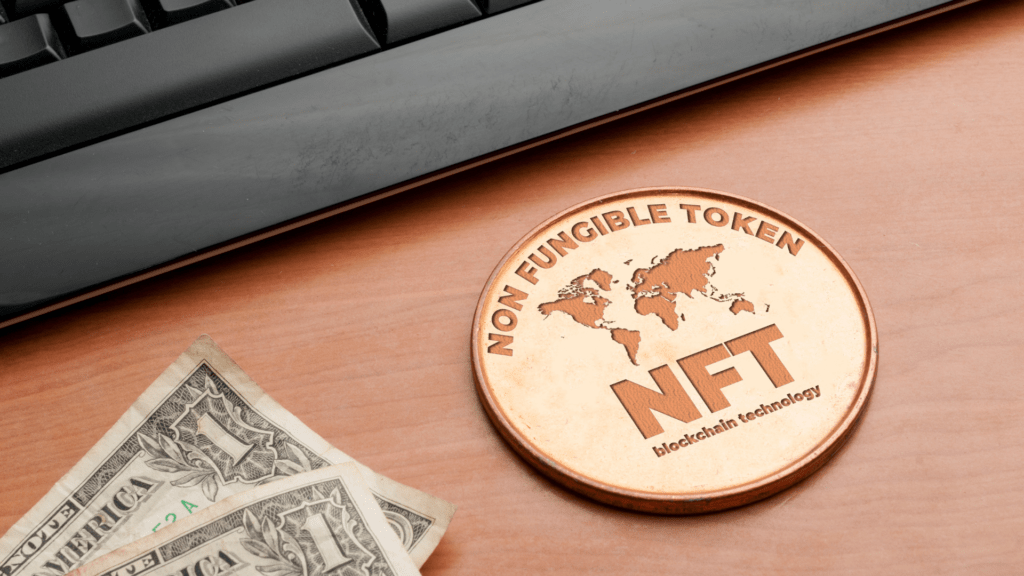
Since the launch of non-fungible tokens (NFTs), there have already been multiple valuable use cases outside the typical gaming and artwork world. Whether it is about investing in digital assets, physical objects, or intellectual properties, ways to use NFTs in the real world are evolving!
While the NFT world is still young, there are several projects that can add or are adding great value to consumers and creators. Here is a list of seven unique use cases of NFTs in the real world.
1. Poetry
Poetry and NFTs – a combination you might haven’t heard before! Imitating art is a common problem. However, with NFTs, this problem is resolved. You can keep a virtual artwork safe and authentic by digitally cloning it. Therefore, Crypto art is considered the safest way to verify an art’s authenticity and verification digitally.
Anyone can view the art through OpenSea or other NFT markets, but only the owner with ownership proof can be known as the creator of the artwork. This way, valuable artworks like poetry and other forms are safe on the digital art platform! Hence, art is one of the most common use cases of NFT.
2. Voting
Voting requires voters to bring ID and residential proofs along with them at the voting booths. However, people who don’t have copies of these documents are excluded from their right to vote.
But imagine if voting and NFTs are clubbed together, won’t you think this problem will resolve? NFTs will settle this challenge by giving a digital identity to people. Hence, you won’t need physical documentation to prove your identity! This will also erase out the possibility of voter fraud.
3. Real Estate
Uniting real-world estate with an NFT is a great way to provide authenticity by keeping frauds out of the scenario.
NFTs are the perfect way to prove ownership of even a jewelry piece while reselling. Similarly, the real estate scenario can also use these non-fungible tokens to its advantage. Associating it with an asset will necessarily mean that the NFT owner will also be counted as the asset owner!
Real estate deals with physical properties. Once you create a tokenized version of these property deeds, you can move non-liquid assets like lands into the blockchain. This technology is still a work in progress, and there haven’t been many use cases, but the future is bright!
4. Logistic
Even the logistics industry can make use of NFTs. The non-fungible tokens are transparent and immutable. They’ll make sure that the supply chain remains reliable and authentic. This is particularly necessary for perishable goods because you need to keep track of where they are and how long they will take to reach you.
Here’s how logistics can use NFTs:
- As soon as good is produced, it will get assigned to an NFT which can be scanned on its packaging.
- Metadata will be included as to where and when the good is created.
- Once it enters the supply chain, the NFT will get scanned, and metadata will be added. It will include time and location of arrival.
- As the item reaches its destination, the store will scan the NFT, and they can view its detailed history to confirm its authenticity.
5. Healthcare
Medical data is one of the most sensitive data to exist. You cannot take chances with storing a person’s medical records and compromise their confidentiality. If NFTs are combined with the medical industry, a person’s records can be stored without the risk of harming their privacy.
NFT transactions are made on multiple nodes before they’re added to the blockchain. Once they’re added, the records will be secured from malicious attempts!
Moreover, healthcare professionals can take complete advantage of NFTs. By issuing NFT Birth Certificates, a lifelong identity of the child is created on the blockchain.
6. Academic
NFTs can create academic records of an individual for their courses by creating tokens for each course a student takes. These tokens will then represent degrees, attendance, and other crucial information.
With non-fungible tokens, paper certificates will be a thing of the past! The education credentials can be easily transferred, and blockchain technology will prove authenticity.
7. Intellectual Property and Patents
Protecting one’s intellectual property and patents will get easier with NFTs. The traditional IP right tools like copyrights and trademarks cannot provide proof of ownership of every content piece. But NFT tokens are a great tool for this means.
Since the blockchain is immutable, the owner of the property can prove their ownership at any point in time. They can protect and certify ownership of an invention at any time! It also allows data verification and creates documents for patent-related transactions.
Conclusion
Not every application from the list is currently in full-fledged use. However, as NFTs continue to grow, prepare yourself to see more unique use cases!
Author Bio:
Akanksha Malik is a content creator & digital strategist at Mesha – India’s largest investing club & online community where the world’s best investors gather to share ideas, discover fellow investors, invest in NFTs & crypto, and compete in challenges for real money. She develops content to share her knowledge and insights helping her readers stay updated with the latest in fintech & investments, as well as cryptocurrency trends and upcoming NFT opportunities. Apart from being passionate about her work, Akanksha loves exploring architectural sites and different local dishes during her travels.
[…] digital asset that represents something, like a meme, tweet, video, or piece of art, and NFTs have many surprising uses. They are usually bought and sold with cryptocurrency and are similar to cryptocurrencies in that […]